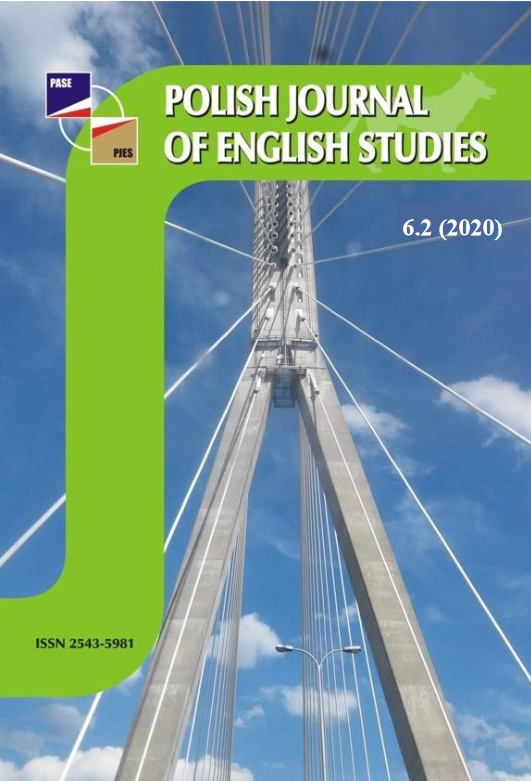Numer 6.2 (2020)
|
Spis treści
Strony
Pobierz
|
|||||
|
|
|||||
|
INFORMACJE O AUTORZE
Uniwersytet im. Adama Mickiewicza w Poznaniu
|
|||||
|
Joanna Różańska
Bringing Shakespeare to Dubai: On Cultural Transfer of Shakespearean Drama, 2012–2020
7 – 30
|
|||||
|
Słowa kluczowe William Shakespeare |DubaiStreszczenie No one doubts that Shakespeare is a unique, universal icon ingrained in the collective consciousness all over the globe; therefore, his presence in the Middle Eastern cultural perception should not come as a surprise. In fact, the Bard is one of the very few easily recognizable Western artists in this GCC region. In my article, I examine the problem of a specific transfer of Shakespearean drama to Dubai, and I put in question Bard’s total universality. To explain my thesis, I made an attempt to provide comprehensive characteristics of this young Muslim Emirate, which in less than fifty years of its existence has become an extremely successful, multicultural, and sociological experiment with more than two hundred coexisting nationalities. I concentrate on several cultural factors that affect the dramas’ relocation and how theatre managers/directors/artistic directors manage with that challenge. I review processes of possible adaptations conducted in order to satisfy prospective theatrical audience of multitude backgrounds and cultural requirements as well as expectations of this Islamic Emirate (including reasons for censorship). I aim to give a general picture of Dubai theatres, both mainstream show business stages together with as independent performing arts venues; I explain reasons for little presence of particular Shakespeare’s dramas, possible misinterpretations and justifications for oeuvre selection that was done in the certain period of time 2012–2020. To present the most comprehensive picture of Shakespeare’s drama relocation to Dubai, I was pleased to conduct multitude conversations with highly respected and esteemed people of culture and arts who represent honourable institutions of Dubai – Mr. Yasser Al Gargawi Director of Cultural Events in the Ministry of Culture &Knowledge Development, currently the Chairman of Dubai National Theatre, Mr. Joseph Fowler, Director of Dubai Opera, Arts & Culture for the World Exhibition - Expo 2020, and Mr. Gautam Goenka, Artistic Director and Co-Founder of The Junction (theatre). INFORMACJE O AUTORZE
Polskie Towarzystwo Szekspirowskie
|
|||||
|
Anna Wołosz-Sosnowska
Maja Kleczewska’s Hamlet as a Mirror of Contemporary Poznan and Poland
31 – 42
|
|||||
|
Słowa kluczowe Maja Kleczewska |multiculturalism |Poland |William Shakespeare |Hamlet |women |theatrical performanceStreszczenie Hamlet is a timeless play, which has been inspiring artists - actors, directors, film makers as well as writers, for over 400 years. The beauty of language, but also the universality of the topics such as revenge, betrayal, struggle for power, love, as well as the role of theatre are the reasons why Hamlet is still so contemporary. Nevertheless, Shakespeare’s plays reveal their full potential when they are staged, but staging Hamlet in the 21st century in Poland, in Poznan is connected with the question ‘why?’. What is the reasoning behind staging this Elizabethan play today? Nowadays the adaptations of Shakespeare’s plays, both on stage and on screen, are not without a reason; the already mentioned universality transforms itself into a comment on socio-political situation. In the play itself, Shakespeare refers to the theatre-mirror metaphor which comments on the reality. INFORMACJE O AUTORZE
Uniwersytet im. Adama Mickiewicza w Poznaniu
Polskie Towarzystwo Szekspirowskie |
|||||
|
Jacek Fabiszak,
Urszula Kizelbach The Merchant of Venice on (Polish) Stage: The Past (Tense)?
43 – 53
|
|||||
|
Streszczenie The aim of the article is to consider a production of The Merchant of Venice in Poland after the publication of Jan Gross’s Sąsiedzi [Neighbours] (2000), which rekindled, or perhaps started, the discussion on the nature of the Polish-Jewish relations. Furthermore, the play itself is considered difficult in the post-Holocaust era. For these reasons, it seems interesting to discuss Szymon Kaczmarek’s production (2019) and the director’s handling of this dramatic and cultural ‘hot potato’. Although Kaczmarek does not refer to Gross’s publication directly, yet he uses the fate of Jewish and female characters in the play to comment on the marginalised in present-day Poland. INFORMACJE O AUTORACH Jacek Fabiszak Uniwersytet im. Adama Mickiewicza w Poznaniu Urszula Kizelbach Uniwersytet im. Adama Mickiewicza w Poznaniu Polskie Towarzystwo Szekspirowskie |
|||||
|
Wojciech Kieler
Reciprocal Mirror and the Captivity of the Text: Planes of Captivity in Hamlet by the ImPerfect Dancers
54 – 57
|
|||||
|
INFORMACJE O AUTORZE
Polskie Towarzystwo Szekspirowskie
|
|||||
|
|
|||||

